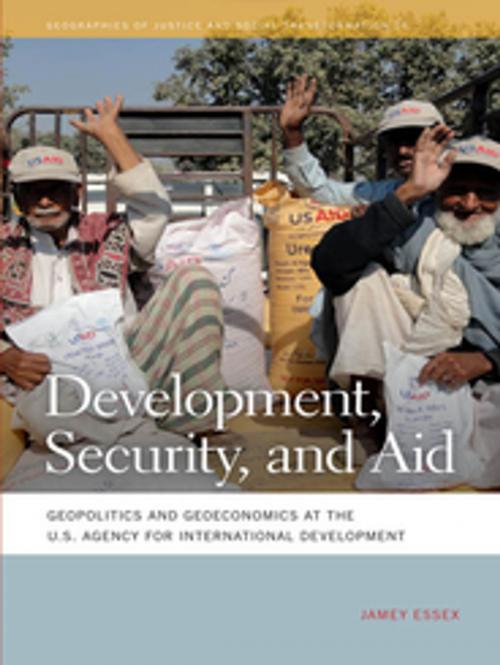Development, Security, and Aid
Geopolitics and Geoeconomics at the U.S. Agency for International Development
Nonfiction, Social & Cultural Studies, Social Science, Human Geography, Political Science, International, International Relations| Author: | Jamey Essex, Deborah Cowen, Melissa Wright, Nik Heynen | ISBN: | 9780820345673 |
| Publisher: | University of Georgia Press | Publication: | March 1, 2013 |
| Imprint: | University of Georgia Press | Language: | English |
| Author: | Jamey Essex, Deborah Cowen, Melissa Wright, Nik Heynen |
| ISBN: | 9780820345673 |
| Publisher: | University of Georgia Press |
| Publication: | March 1, 2013 |
| Imprint: | University of Georgia Press |
| Language: | English |
In Development, Security, and Aid Jamey Essex offers a sophisticated study of the U.S. Agency for International Development (USAID), examining the separate but intertwined discourses of geopolitics and geoeconomics.
Geopolitics concentrates on territory, borders, and strategic political and military positioning within the international state system. Geoeconomics emphasizes economic power, growth, and connectedness within a global, and supposedly borderless, system. Both discourses have strongly influenced the strategies of USAID and the views of American policy makers, bureaucrats, and business leaders toward international development. Providing a unique geographical analysis of American development policy, Essex details USAID's establishment in 1961 and traces the agency's growth from the Cold War into an era of neoliberal globalization up to and beyond 9/11, the global war on terror, and the looming age of austerity.
USAID promotes improvement for millions by providing emergency assistance and support for long-term economic and social development. Yet the agency's humanitarian efforts are strongly influenced, and often trumped, by its mandate to advance American foreign policies. As a site of, a strategy for, and an agent in the making of geopolitics and geoeconomics, USAID, Essex argues, has often struggled to reconcile its many institutional mandates and objectives. The agency has always occupied a precarious political position, one that is increasingly marked by the strong influence of military, corporate, and foreign-policy institutions in American development strategy.
In Development, Security, and Aid Jamey Essex offers a sophisticated study of the U.S. Agency for International Development (USAID), examining the separate but intertwined discourses of geopolitics and geoeconomics.
Geopolitics concentrates on territory, borders, and strategic political and military positioning within the international state system. Geoeconomics emphasizes economic power, growth, and connectedness within a global, and supposedly borderless, system. Both discourses have strongly influenced the strategies of USAID and the views of American policy makers, bureaucrats, and business leaders toward international development. Providing a unique geographical analysis of American development policy, Essex details USAID's establishment in 1961 and traces the agency's growth from the Cold War into an era of neoliberal globalization up to and beyond 9/11, the global war on terror, and the looming age of austerity.
USAID promotes improvement for millions by providing emergency assistance and support for long-term economic and social development. Yet the agency's humanitarian efforts are strongly influenced, and often trumped, by its mandate to advance American foreign policies. As a site of, a strategy for, and an agent in the making of geopolitics and geoeconomics, USAID, Essex argues, has often struggled to reconcile its many institutional mandates and objectives. The agency has always occupied a precarious political position, one that is increasingly marked by the strong influence of military, corporate, and foreign-policy institutions in American development strategy.















